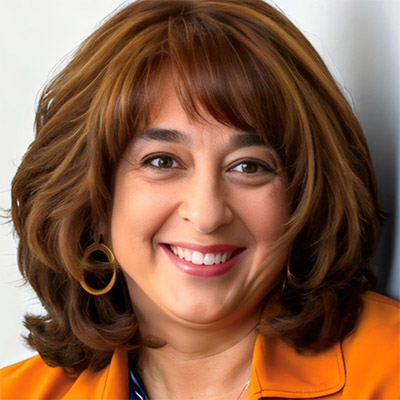Presenter Profile

Adrienne P. Robertiello, BS, ACDS
Children’s Specialized Hospital
arobertiello@childrens-specialized.org
Adrienne is the Interim Autism Program Coordinator and Specialized Health Care Educator at Children’s Specialized Hospital (CSH), the nation’s leading provider of inpatient and outpatient care for children from birth to 21 years of age facing special health challenges. She collaborates with experts, organizations, agencies, individuals with disabilities, and families to educate and provide practical resources that promote inclusion, access, and equity. In 2021, Adrienne coordinated an Inclusive Healthy Communities grant (Living Safely with Disabilities and Special Health Needs) from the New Jersey Department of Human Services, Division of Disability Services. She developed a team, including disability advocates to establish the Living Safely Online Center for Safety – an extensive compilation of accessible and practical safety tools, resources, and guidance documents. Her leadership contributed to a second IHC grant – Learn to Live Safely with Disabilities and Special Health Needs which embeds inclusive safety education in academic and municipal systems. Adrienne has developed initiatives including Autism and Safety – It's Unpredictable and Real-Life Tips for Kids with Autism. A Seton Hall University graduate, her experiences as a person with a disability and parent of an autistic adult shape her worldview and provide a meaningful connection with the efforts and outcomes of her work.
Presentations
Empowering Safety: Inclusive Practices for People with Disabilities
Adrienne P. Robertiello, BS, ACDS
People with disabilities are at heightened risk of injury. This workshop delves into comprehensive strategies aimed at enhancing safety education and preparedness to reduce injuries, with a focus on people with disabilities. It showcases two recent grant initiatives pioneered in New Jersey – Living Safely with Disabilities and Special Health Needs (Living Safely) and Learn to Live Safely with Disabilities and Special Health Needs (Learn to Live Safely). Participants will explore the integration of inclusive safety education within academic and municipal frameworks, ensuring that service providers are equipped with the necessary tools to support the safety needs of disabled individuals. Inter-professional collaborations with postsecondary academic institutions will be described as a means to develop more inclusive and sustainable safety curricula. The workshop highlights methods for embedding accessible safety lessons in adolescent special education transition programs, addressing a critical gap in current educational practices. It sheds light on the importance of educating emergency responders and safety stakeholders about sensory and communication needs and challenges. Participants will learn about adapted education models, including emergency preparedness, where disabled residents actively engage in assembling and maintaining emergency preparedness kits, promoting interdependence and resilience within their communities. By expanding access to Living Safely and Learn to Live Safely tools and resources, this workshop emphasizes the importance of inclusive safety education and practices. Through interactive discussions and real-world scenarios, participants will gain practical insights that empower them to implement these strategies effectively. This is a call to action to collaborate in building the capacity of safety stakeholders and people with disabilities as we learn, teach, and practice safety skills together.
1. Identify comprehensive accessible and functional safety resources and tools for people with disabilities.
2. Equip service providers with inclusive safety practices.
3. Introduce accessible safety education in transition programs.
4. Educate emergency responders on sensory-communication needs and challenges.
5. Empower disabled residents to assemble emergency kits.
6. Develop collaborations within postsecondary academic institutions to build more inclusive safety curricula
7. Foster collaborative relationships between stakeholders and disabled individuals.
